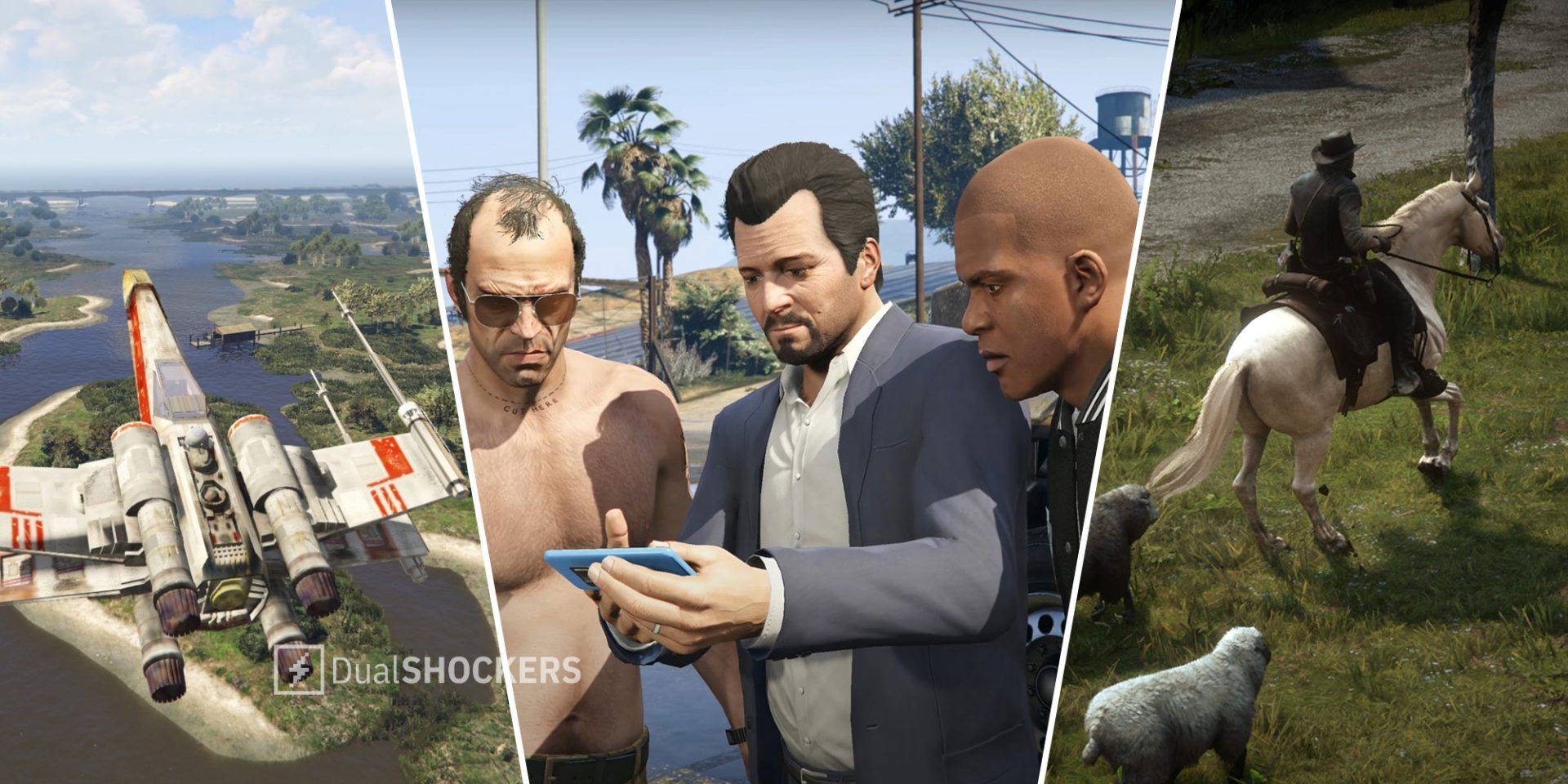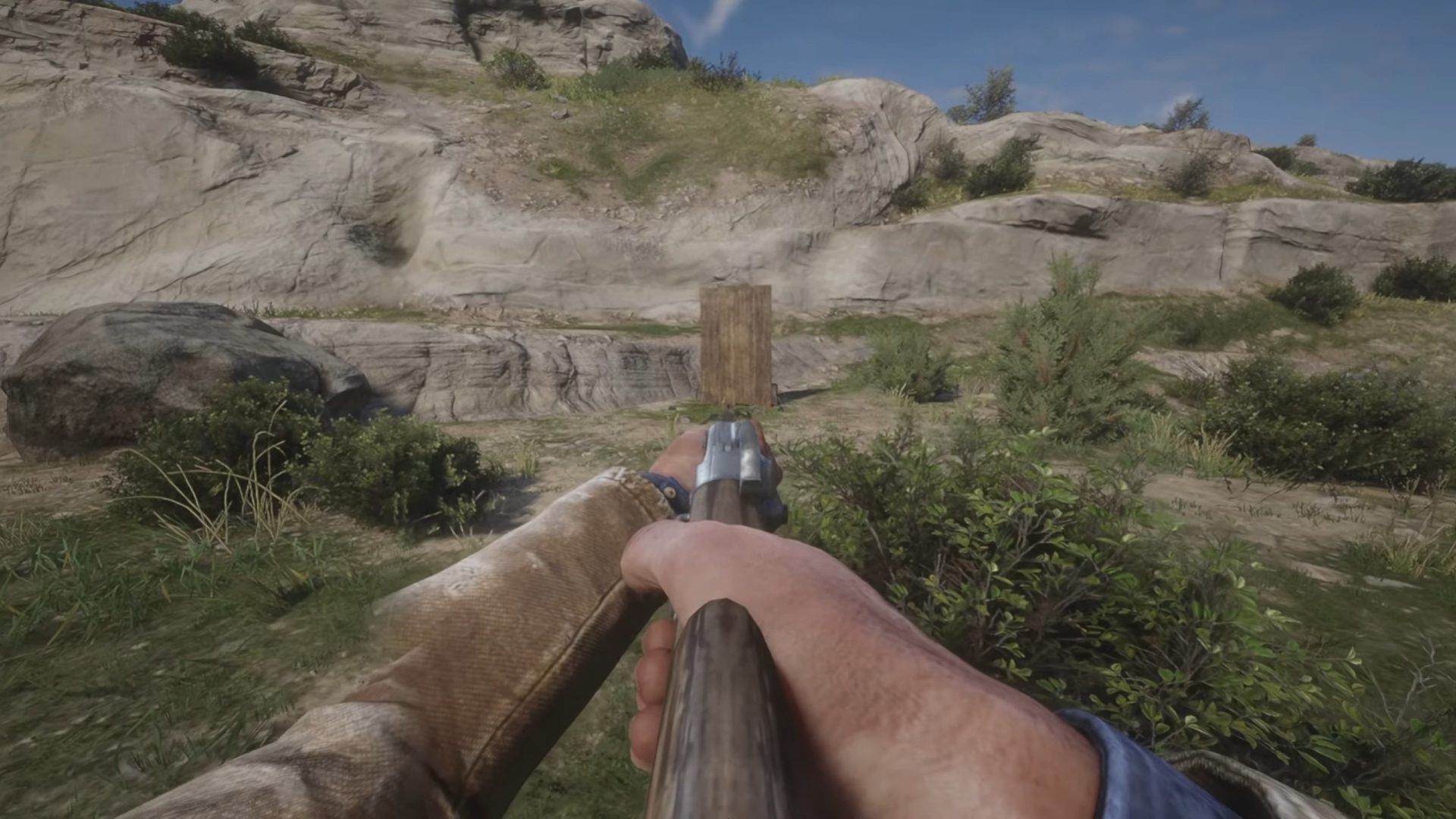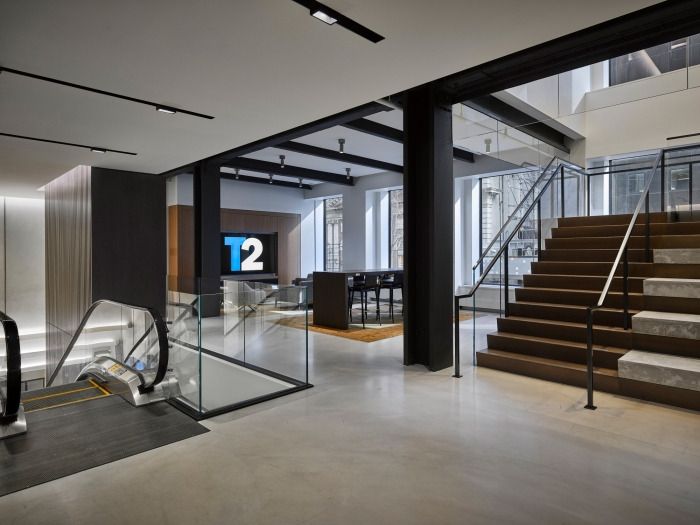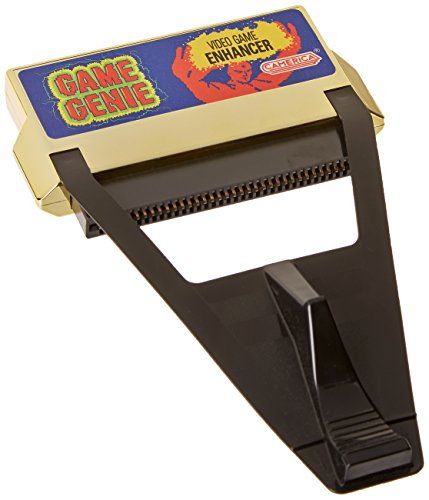So Take-Two is at it again, flaunting its soft power from its tower of steel and glass while making the livelihoods of passionate people who mod their games a misery. The video game holding company has just served a DMCA takedown notice to Luke Ross, a leading figure in the VR modding community, to remove any content relating to Red Dead Redemption 2, Grand Theft Auto 5, and Mafia 2 from his Patreon channel, R.E.A.L. VR Mods. Take-Two owns Rockstar Games and 2K Games, which publish the aforementioned games.
As has become a pattern with Take-Two's takedown requests, the company didn't offer Ross an explanation, who reached out to DualShockers on July 7 to say that he had "less than 24 hours left to comply with the notice before Patreon suspends my page, and I don't even know what Take-Two believes is infringing their rights."
He added: “None of my modifications are built using software belonging to Take-Two Interactive Software Inc. and the modifications are not intended to replace their games, nor are they a means of exploiting Take-Two Interactive Software, Inc's proprietary IP or assets.”
That's a crucial detail right there - that the mods doesn't reuse any of the base game's assets, and in fact requires the base game to work. Ross does not use any of the games' original IP in his mods. A possible hook here could be related to the fact that Ross recently said he makes around $20,000 a month from his Patreon, and could be seen as monetising Take-Two's games, but he points out that he was issued with a copyright notice rather than a licensing notice, which would suggest it has nothing to do with monetisation.
Of course, anyone who's been following Take-Two over the last five years will be aware that the company has been relentlessly cracking down on mods for its other games, even when they too haven't been using original IP. In mid-2021, a slew of DMCAs were issued against seemingly innocent mods like Vice Cry, which replaced Vice City's textures with higher-resolution ones, GTA: Underground, which combined the maps of GTA 3, Vice City, and San Andreas, and countless other GTA mods. All these takedowns occurred in the buildup to the release of the Grand Theft Auto: Definitive Edition Trilogy (and we all saw how that car crash of a game turned out).
The R.E.A.L. VR mod for Red Dead Redemption 2 is no longer accessible.
It's worth following this thread on GTA Forums, which up until mid-2021 was charting Take-Two's policies about modding its games. It's an insightful read, which reveals that between 2017 and 2019 the company has been turning to screw on modders more and more.
Rockstar seemingly convinced Take-Two in 2017 to reel in its draconian policies towards modders, leading to an 'agreement' posted on the Rockstar website that set a somewhat restrictive but reasonable framework for modding. This included conditions like not porting content from older GTA games into the RAGE engine that more recent games run on, and not to tamper with online modes.
In 2019 however, the agreement was silently updated to remove some of the more modder-friendly conditions, and added a condition that modders weren't allow to be "making new games, stories, missions, or maps." Crucially, the statement concludes thus:
This is not a license, and it does not constitute endorsement, approval, or authorization of any third-party project. Take-Two reserves the right to object to any third-party project, or to revise, revoke and/or withdraw this statement at any time in their own discretion.
So essentially, Take-Two gets to do whatever it wants (and hoo-boy has it been doing that in the past few years!).
Take-Two's offices are empty, suggesting that they're run by a malevolent AI rather than actual people.
The thing is, if the resources on both sides were to be equal (which they're almost certainly never going to be in the case of a modder going up against a multi-billion dollar corporation), then modders would have strong grounds for winning. The case of Lewis Galoob Toys, Inc. v. Nintendo of America (1992) set a precedent. The case came off the back of Nintendo suing Galoob for its Game Genie product - essentially a cheat cartridge that let players modify games for the SNES in ways Nintendo didn't originally intend, accessing hidden files, cut content, all kinds of game-breaking cheats, and so on.
Galoob filed a complaint against Nintendo, and won, with District Judge Fern M Smith concluding that "Having paid Nintendo a fair return, the consumer may experiment with the product and create new variations of play, for personal enjoyment, without creating a derivative work."
'Experimenting with the product and creating new variations of play' kind of like modding, doesn't it? Especially given that it pertains to a product that very much was a mod cartridge. But even though the precedent exists, the huge resource imbalance means that Take-Two can pretty much lob these DMCA requests around with impunity. Legal precedent means little when sheer financial power crushes any desire or means for people to enforce that precedent.
A somewhat valid justification for this particular DMCA takedown of Luke Ross' mods would be that, as happened with the GTA Definitive Edition Trilogy, Rockstar are currently working on VR versions of Red Dead Redemption 2 and GTA V. Let's cast aside the fact that Ross' mods prove that you don't actually need a whole new 'version' of a game to make it VR; Take-Two absolutely have a right to monetise and milk their games how they please, and a VR mod fulfilling the same purpose as a paid VR version of the game would basically be money not going into Take-Two's hands (and, indirectly, into Ross').
This wonderful device, the Game Genie, set the precedent that modding is fine in the eyes of the law.
Should that be the case, then a little bit of community outreach from Take-Two could've turned this PR disaster into a PR opportunity. The company could reach out to the modder, thank them for their great work and for bringing to attention the huge demand for a VR mod - not to mention the mod's role in helping sell extra copies of the game - and give a few months' notice for the modder to take down the mod themselves. Throw in a free copy of the VR game in question and a goodie bag from the company while you're at it.
Take-Two have shown no gratitude or outreach to the modders affected by their takedown requests over the years. The DMCA requests hit suddenly and hard, often undercutting projects that modders were in the middle of working on, and in Ross' case threatening his income from Patreon. It all speaks to the aloofness of a company that's several levels removed from the games themselves, and has even found itself at odds with the publishers under its own umbrella when Rockstar 'had words' with Take-Two and released that (now modified) agreement. Rockstar Games are no angels, but at least they seem to understand the value that a healthy mod community adds to a game.
Ross, meanwhile, told me that he hoped Take-Two's takedown request wouldn't cause a 'domino effect' where other publishers would start issuing their own notices. I'm optimistic that other publishers won't display the same bewildering disconnect from the community that Take-Two has, and will let players enjoy Ross' wealth of other VR mods, including those for The Witcher 3, Cyberpunk 2077, Horizon Zero Dawn, Elden Ring and Dark Souls.




